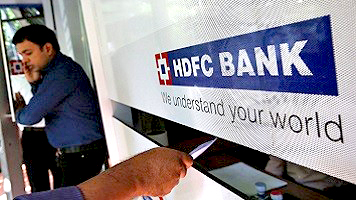 New Delhi, Nov 10: Banking consumers will have to pay more if they are prolific with ATM transactions as State Bank of India (SBI) and its private sector peers HDFC Bank and Axis Bank have capped the free usage in six metros at three.
New Delhi, Nov 10: Banking consumers will have to pay more if they are prolific with ATM transactions as State Bank of India (SBI) and its private sector peers HDFC Bank and Axis Bank have capped the free usage in six metros at three.
The capping and additional fees on excess usage come following a recent circular by the Reserve Bank of India allowing banks to limit the number of free ATM transactions to five - three in the largest six cities and two elsewhere - a month.
Under the new norms, which have been accepted by the RBI, a customer can make three free ATM transactions in the six largest cities at own-bank machines and two elsewhere.
The new limits and rates by SBI, HDFC Bank and Axis Bank will be applicable to transactions done in Mumbai, New Delhi, Chennai, Kolkata, Bangalore and Hyderabad.
SBI, which had reported a loss of nearly Rs. 400 crore by way of paying other banks as interbank ATM usage in FY14, was first to cap free ATM transactions at three and impose fees of Rs 20 per subsequent transaction. Since November 1, the new norms are effective at India's largest lender, SBI.
However, the bank has allowed more free ATM transactions to those who avoid visiting its branches, and unlimited transactions for those with large balances.
The second and the third largest private sector players - HDFC Bank and Axis Bank, respectively - have also followed suit and said effective December 1, they will also be charging Rs 20 per transaction above five a month.
While HDFC Bank will charge Rs 20 for cash withdrawals and Rs. 8.5 (excluding taxes) for balance enquiry, mini statement, etc., Axis Bank will also charge Rs 20 and taxes for financial transactions and Rs 9.5 for non-financial ones.
At third-party ATMs, HDFC Bank and Axis Bank will charge for more than three transactions, down from the earlier five free transactions, the banks said in separate customer notifications.
Axis Bank, which with a little over 12,000 ATMs, however, is offering 10 free transactions for its Prime Plus savings account and Prime salary account holders.
But both these account holders need to have a minimum opening balance of Rs. 1 lakh and they can have first five free transactions at non-home bank ATMs.
SBI has been from November 1 charging for more than own-ATM withdrawals a month at accounts having less than Rs. 25,000 in monthly balance. For accounts with over Rs 25,000 and above in balance, however, there is no limit at its own ATM network. But, their access to third-party ATMs is capped at three a month.
Those who exceed the limit will pay Rs 5 per transaction at its ATMs and Rs 20 at machines belonging to other banks. The bank is charging Rs. 8 for each non-financial transaction above the cap.
The lender has also raised the number of free usage on its home network from five to nine, if a customer does not visit a branch during the month.
For those who maintain average balances of over Rs 1 lakh, SBI is providing unlimited access to all ATMs. However, those with less than Rs 25,000 balances are charged above five transactions on its ATMs and three at third-party machines.
As per latest data from the RBI, at the end of June quarter there were 1,66,894 ATMs in the country and with 44,929 machines, SBI is way ahead of its nearest rival Axis Bank by more than three times or over 27 per cent of the market.
SBI has 12.59 crore cardholders and accounts for 31 per cent of the 40.9 crore debit cards in the country and its cardholders are responsible for over 41 per cent of all ATM transactions.





Comments
Add new comment